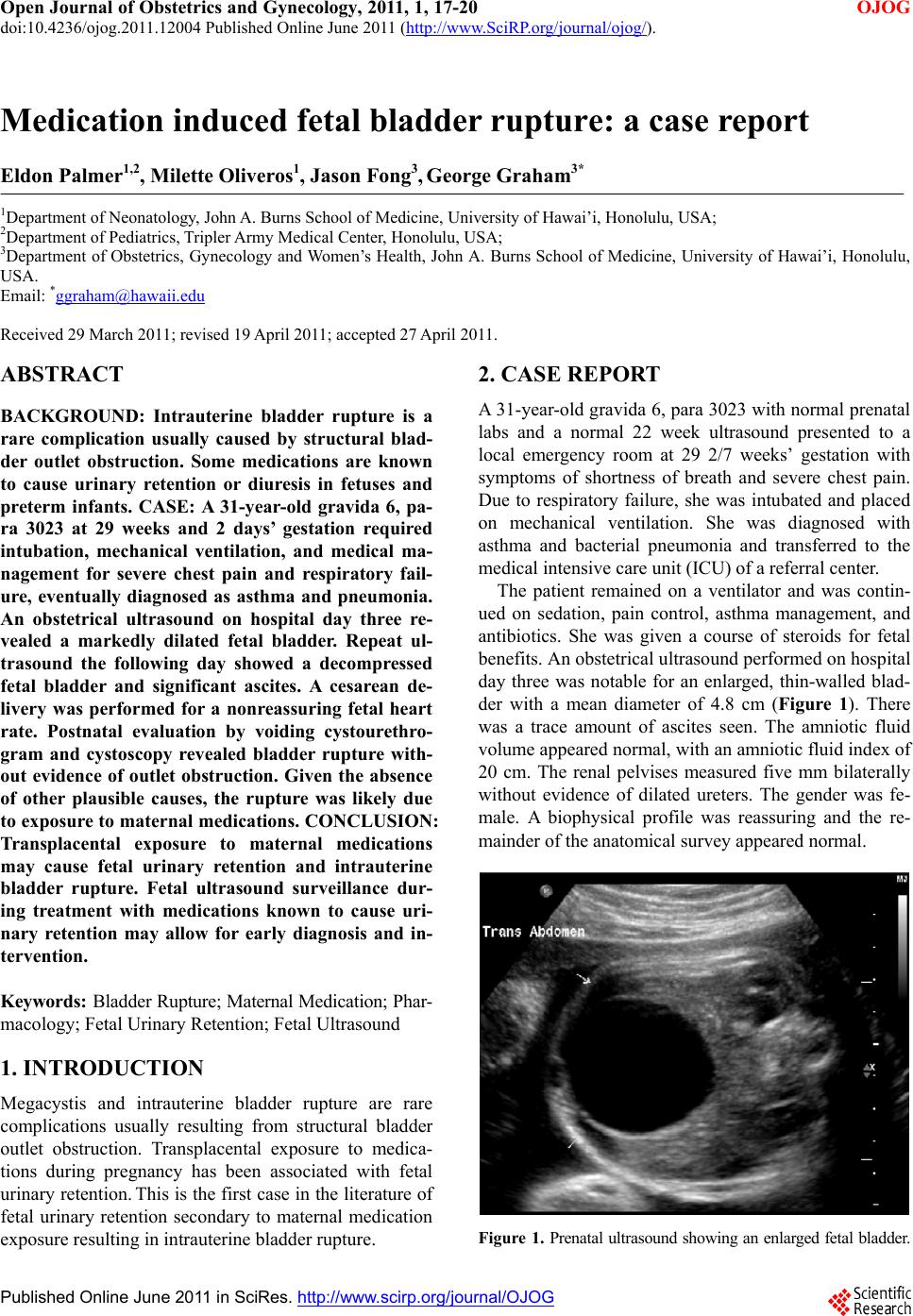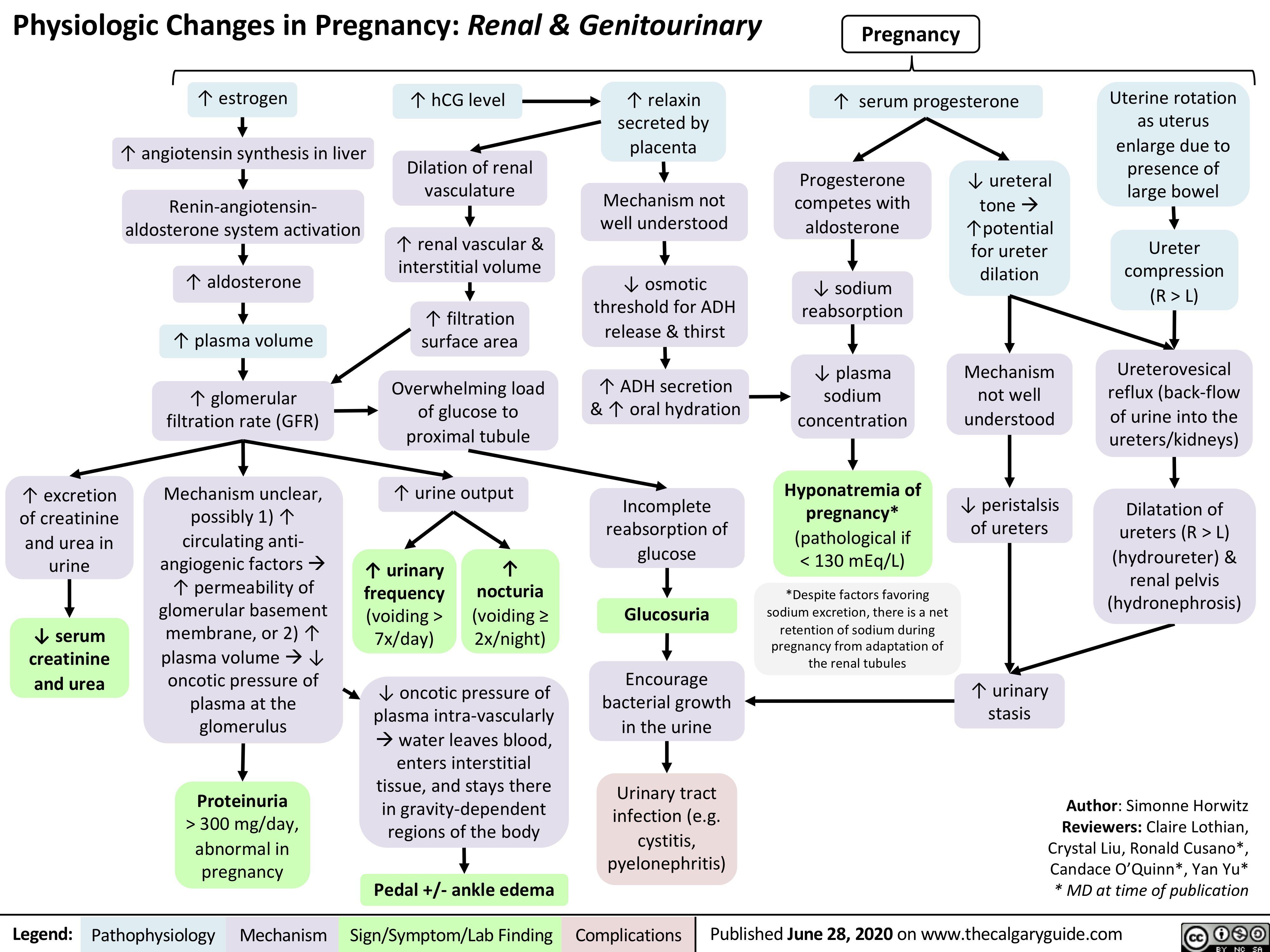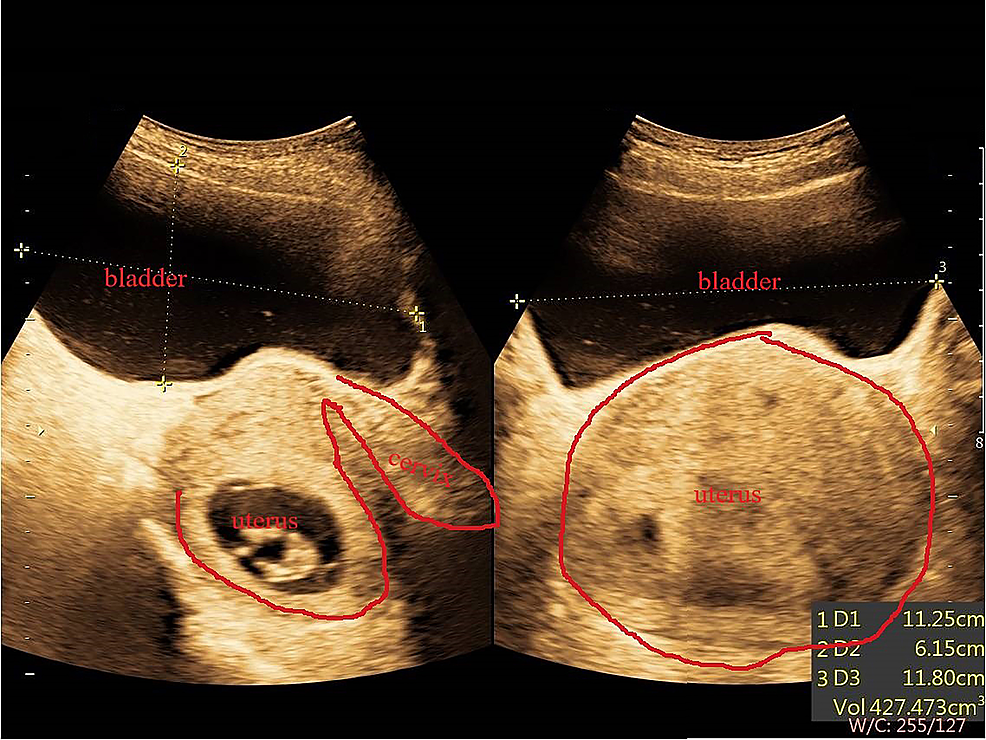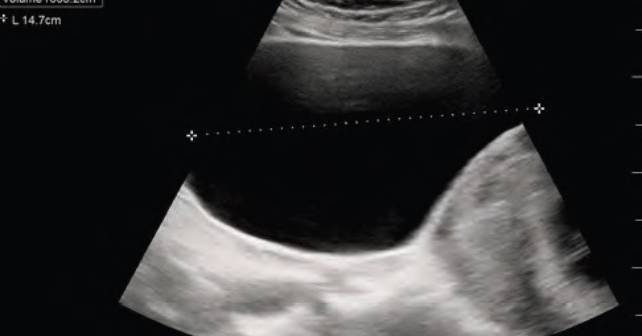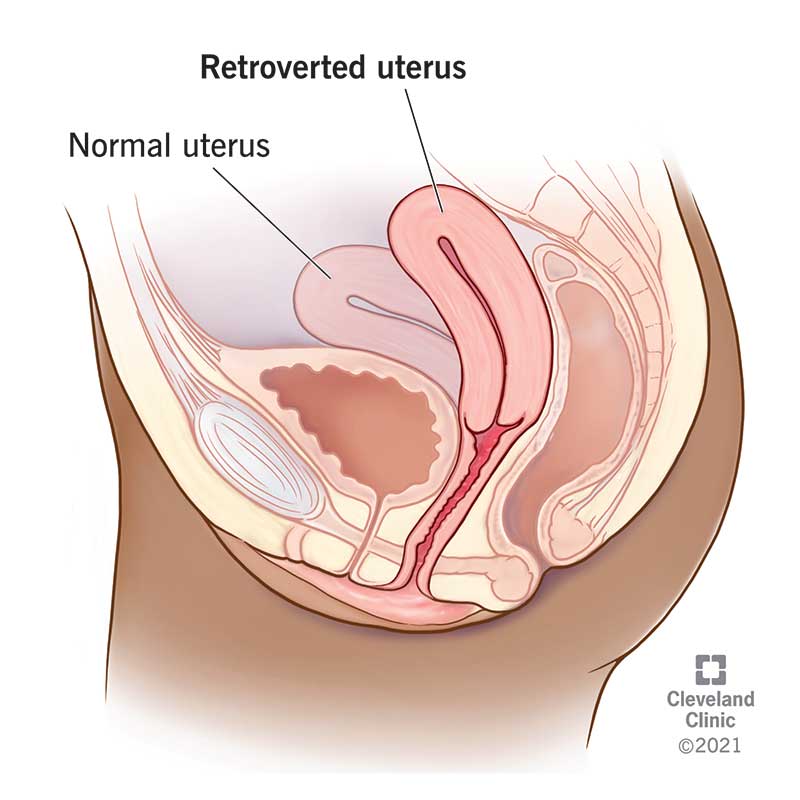Medication induced fetal bladder rupture: a case report
4.8 (702) · $ 21.99 · In stock
BACKGROUND: Intrauterine bladder rupture is a rare complication usually caused by structural bladder outlet obstruction. Some medications are known to cause urinary retention or diuresis in fetuses and preterm infants. CASE: A 31-year-old gravida 6, para 3023 at 29 weeks and 2 days’ gestation required intubation, mechanical ventilation, and medical management for severe chest pain and respiratory failure, eventually diagnosed as asthma and pneumonia. An obstetrical ultrasound on hospital day three revealed a markedly dilated fetal bladder. Repeat ultrasound the following day showed a decompressed fetal bladder and significant ascites. A cesarean delivery was performed for a nonreassuring fetal heart rate. Postnatal evaluation by voiding cystourethrogram and cystoscopy revealed bladder rupture without evidence of outlet obstruction. Given the absence of other plausible causes, the rupture was likely due to exposure to maternal medications. CONCLUSION: Transplacental exposure to maternal medications may cause fetal urinary retention and intrauterine bladder rupture. Fetal ultrasound surveillance during treatment with medications known to cause urinary retention may allow for early diagnosis and intervention.

PDF) Management of uterine rupture: a case report and review of the literature

Organ-preserving treatment of an epididymal abscess in a patient with spinal cord injury

Bladder outlet obstruction, Radiology Reference Article
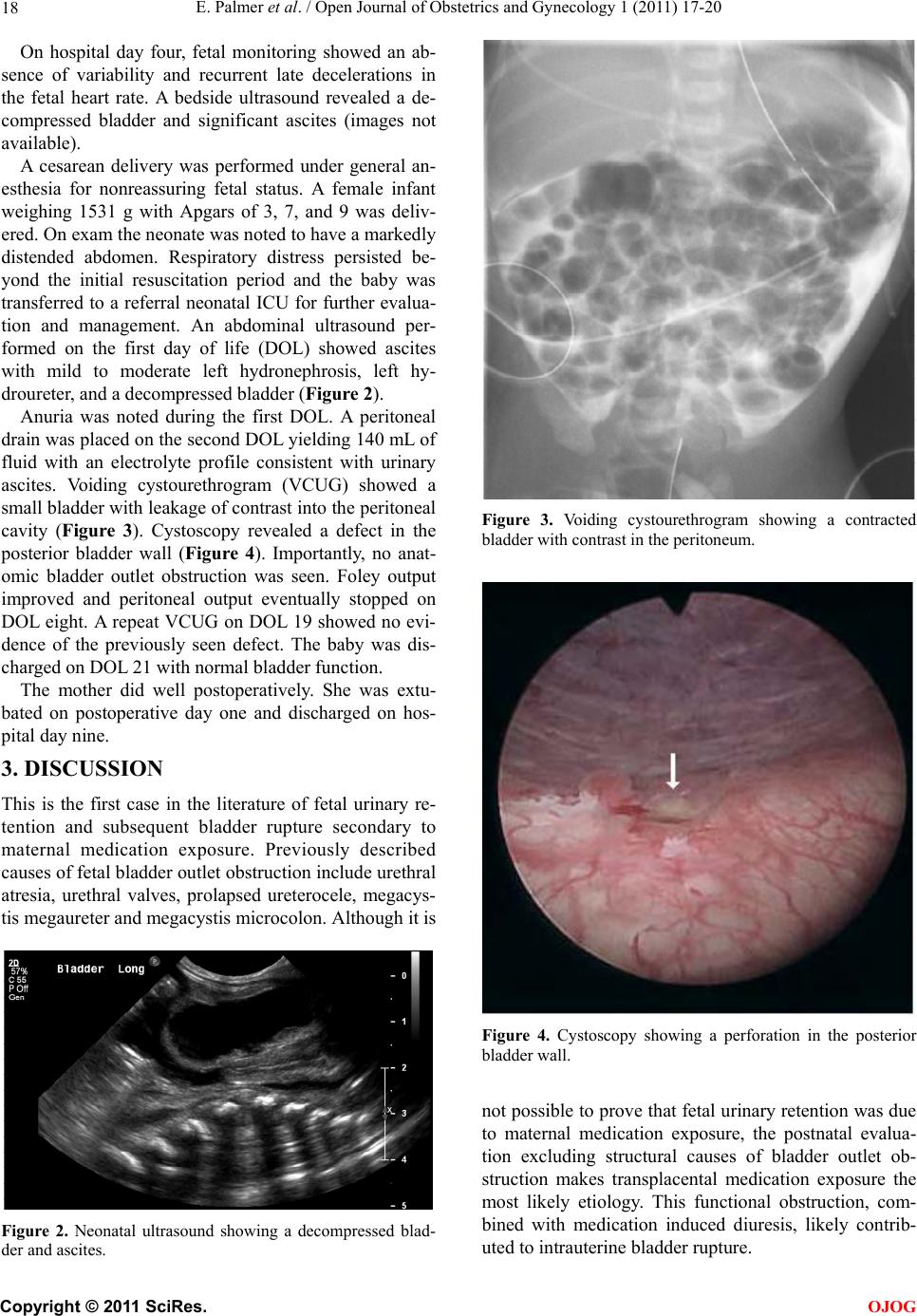
Medication induced fetal bladder rupture: a case report
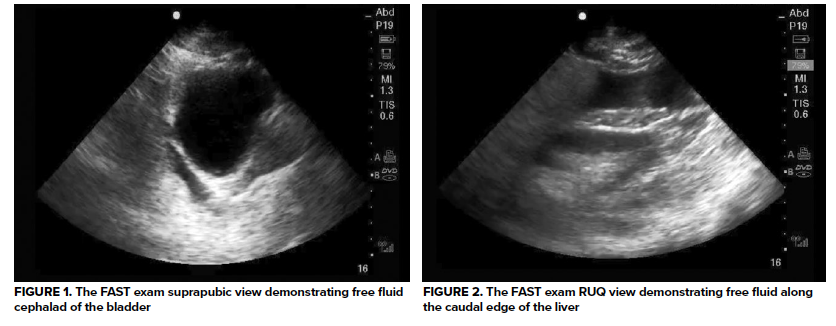
Not so FAST: Intraperitoneal Bladder Rupture EMRA
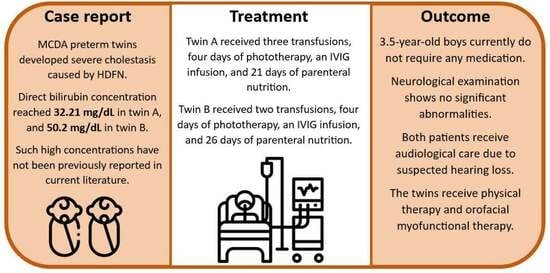
JCM, Free Full-Text

PDF] Medication induced fetal bladder rupture: a case report

Figure 3 from Anterior cervico-vaginal tear along with posterior bladder wall rupture: a rare case report

PDF) Exposure to biological maternal sounds improves
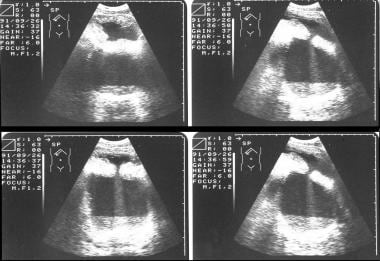
Cystitis Imaging: Practice Essentials, Radiography, Computed Tomography






